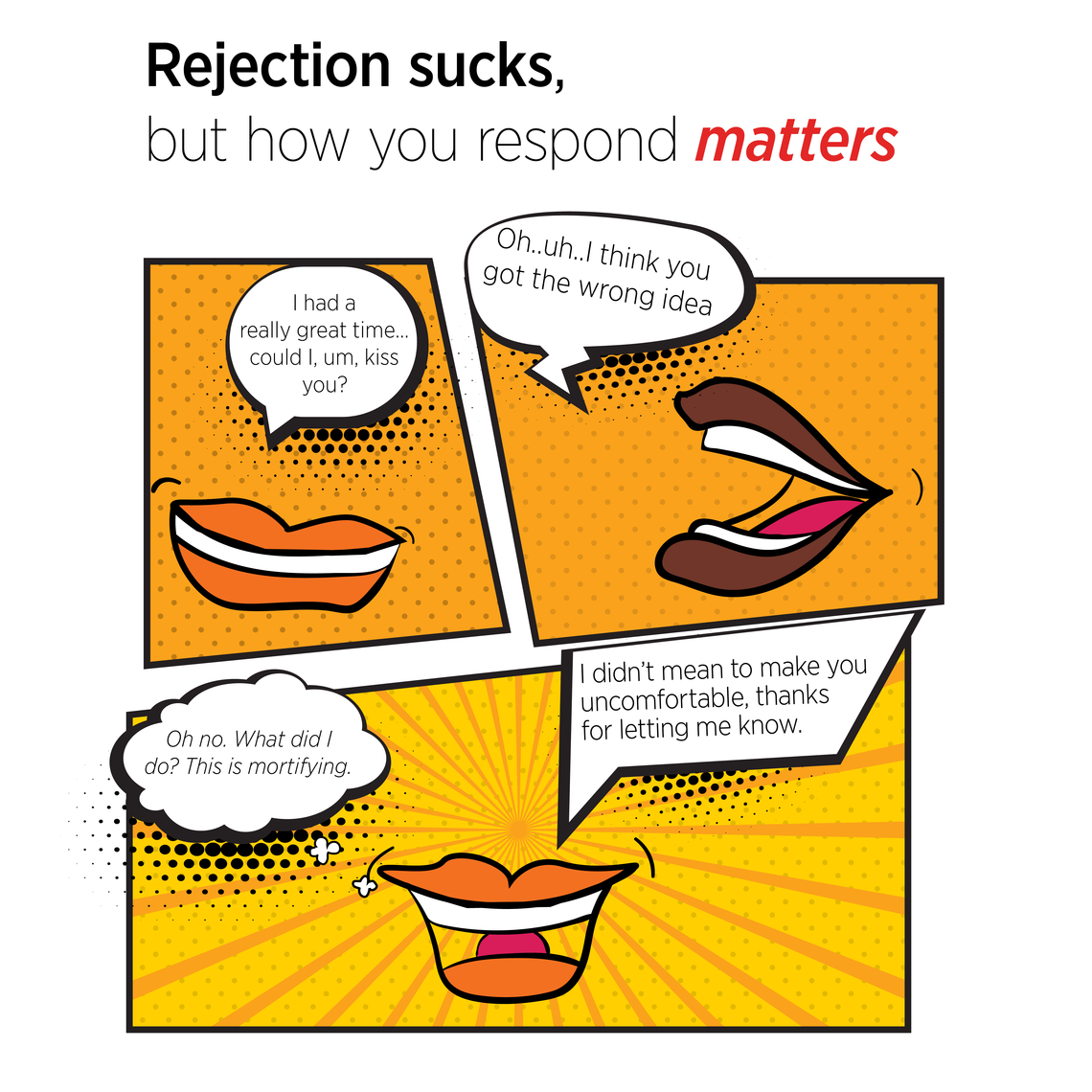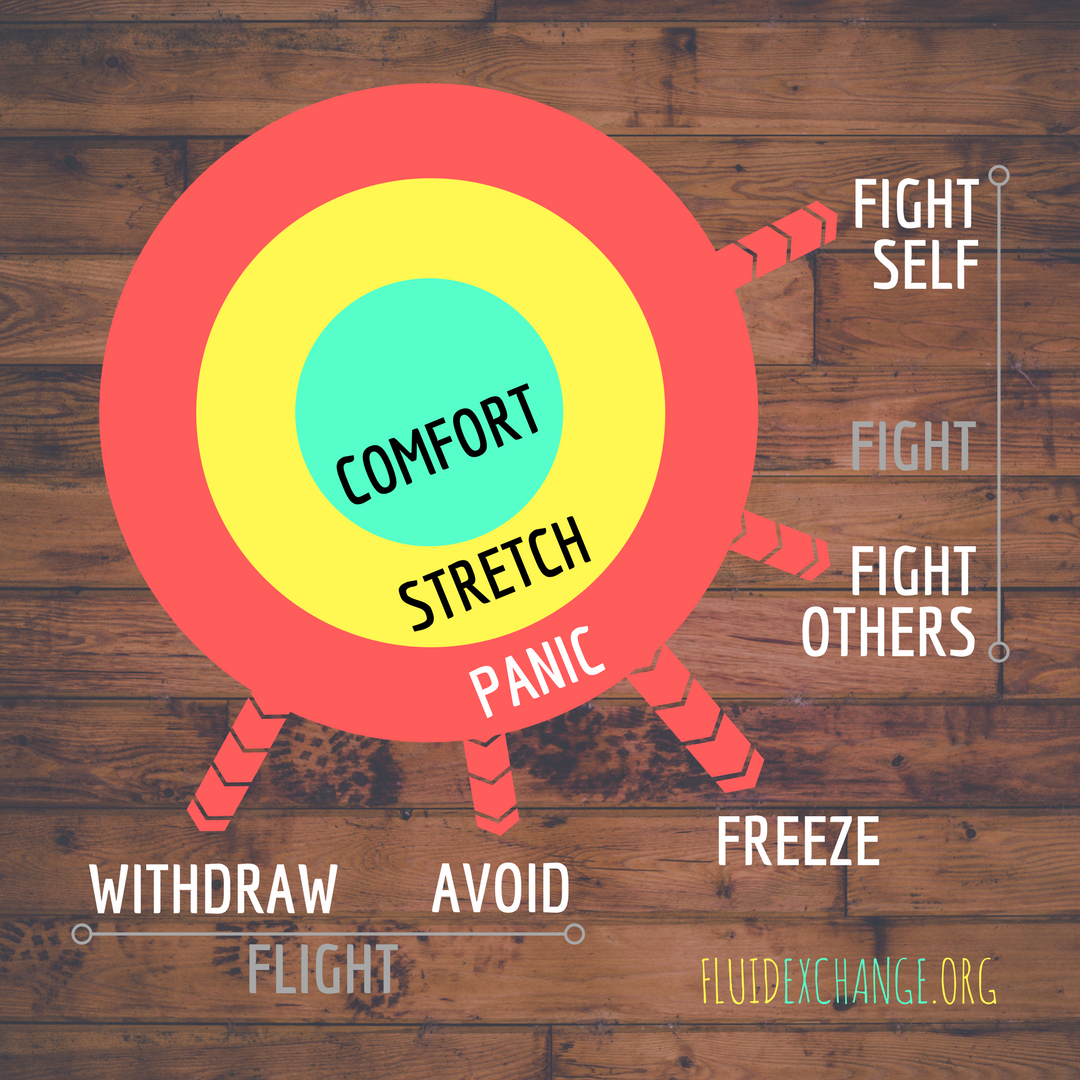
Creating a culture of consent
The first phase of the Ask First campaign focused on rejection resilience; learning how to accept rejection with kindness.

It takes courage to ask for consent
Asking for consent, though required, takes courage. But what does courage really feel like? It isn’t heroic, nor does it feel good in the moment. Often, courage feels uncomfortable.
When we ask for consent – we’re being courageous and in turn, we’re opening ourselves up to rejection. To be resilient, we have to expect, and develop strategies to handle, rejection.
What reactions mask your pain?
When we build the courage to ask someone to be intimate, we’re vulnerable and leaving our comfort zone. Whether overt or implied, “no” is always a potential answer.
When we’re told no, our it initiates our panic zone. Our response to the panic zone varies for everyone. Which do you feel resonates most with you – fight or flight?
Understand "no" takes many forms. Acknowledge the other person is setting a boundary and their consent isn’t negotiable, nor personal.
Identify your relationship to rejection. Which of the above responses feels familiar, and how can you recognize rejection when it happens?
Name what you're feeling. Allowing yourself to name rejection and how it makes you feel creates space to build your resiliency and address your discomfort head on. Remember, no one owes you their affection. It’s never up to the other person to make you feel better about rejecting you.
Respond in a way that addresses your rejection by acknowledging that you understand that they have set a boundary. You might say "I didn't mean to make you feel uncomfortable, thanks for letting me know," "I completely understand, it was really nice talking to you!" or "I'm feeling rejected right now, and that's okay. I'll work through it and we can touch base next week."
Adjust your expectations for next time. It takes courage to put yourself out there. Your self-worth isn’t reflected by whether someone wants to be intimate with you. Tolerating emotional discomfort is an acquired skill. Taking responsibility for your feelings increases your capacity for courage and responding to rejection with kindness in the future.
People are resilient. Rejecting someone else's advances is hard, but you aren’t responsible for the way that other people react to your boundaries. If you feel you’re compromising your needs to fulfill someone else's, being coerced or you feel unsafe or disrespected; you aren't giving enthusiastic consent and it’s not your fault.
Source: All content provided by and used with permission from Karen B.K. Chan, fluidexchange.org

Ask First: Creating a Culture of Consent, is a three-year project launched in Fall 2015 by the Women’s Resource Centre, University of Calgary, in collaboration with the Consent Awareness and Sexual Education Club. It aims to create a campus culture where victim blaming is no longer tolerated and the concept of consent is understood and practiced in the community so all students feel safe and respected.
This project is funded by the Students’ Union Quality Money.
